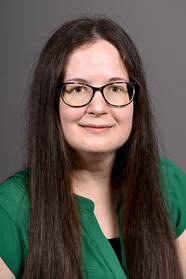About Me

Katie Corcoran is an Associate Professor of Sociology at West Virginia University in the Department of Sociology and Anthropology. She received her Ph.D. in Sociology from the University of Washington as well as an MA in Sociology and an MA in International Studies (Comparative Religion). She received Certification in Social Statistics from the Center for Statistics and Social Sciences (CSSS) at the University of Washington. She co-developed and co-directs the Survey Research Center at WVU and co-developed and co-directs the the online graduate certificate in Quantitative & Qualitative Social Science Research Methods.
She is a theoretical generalist who studies social groups and networks as links between macro- structures and micro- attitudes and behaviors. In particular, she examines how social, cultural, and structural factors shape individual-level health-related attitudes, behaviors, and outcomes. In order to explore these relationships, she draws on individual-level, cross- organizational, regional, and national data and uses advanced quantitative as well as qualitative methodologies.
She is currently working on several projects: (1) predictors of vaccine hesitancy, skepticism, and uptake and trust in science and medicine; (2) COVID-19 mitigation behavior and (mis)information in closed rural religious communities; (3) diagnosis, healthcare coordination, and chronic illness among rare disease patients; and (4) maternal health.
She is a theoretical generalist who studies social groups and networks as links between macro- structures and micro- attitudes and behaviors. In particular, she examines how social, cultural, and structural factors shape individual-level health-related attitudes, behaviors, and outcomes. In order to explore these relationships, she draws on individual-level, cross- organizational, regional, and national data and uses advanced quantitative as well as qualitative methodologies.
She is currently working on several projects: (1) predictors of vaccine hesitancy, skepticism, and uptake and trust in science and medicine; (2) COVID-19 mitigation behavior and (mis)information in closed rural religious communities; (3) diagnosis, healthcare coordination, and chronic illness among rare disease patients; and (4) maternal health.
